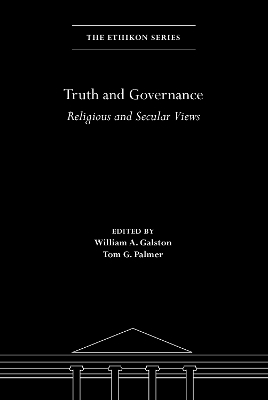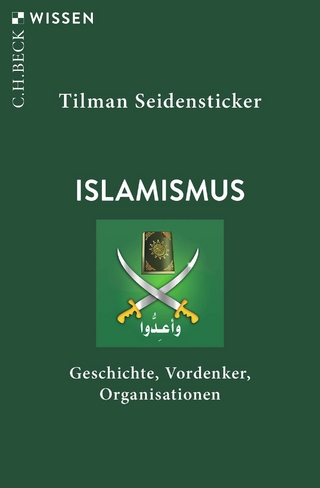
Truth and Governance
Religious and Secular Views
Seiten
2021
Brookings Institution (Verlag)
978-0-8157-3930-2 (ISBN)
Brookings Institution (Verlag)
978-0-8157-3930-2 (ISBN)
This book will open readers' eyes to the variety of possible approaches to the relationship between truth and governance. Readers will find views they thought self-evident challenged, and will come away with a greater understanding of the importance of truth and truth-telling and of how to counter deliberate deception.
Taking the long view of conflicts between truth and political powerWhat role does truth play in government? In context of recent political discourse around the globeand especially in the United Statesit is easy to believe that truth, in the form of indisputable facts, is a matter of debate.
But it's also important to remember that since ancient times, every religious and philosophical tradition has wrestled with this question. In this volume, scholars representing ten traditionsWestern and Eastern, religious and secularaddress the nature of truth and its role in government. Among the questions they address: When is deception permissible, or even a good thing? What remedies are necessary and useful when governments fail in their responsibilities to be truthful?
The authors consider the relationship between truth and governance in democracies, but also in non-democratic regimes. Although democracy is distinctive in requiring truth as a fundamental basis for governing, non-democratic forms of government also cannot do without truth entirely. If ministers cannot give candid advice to rulers, the government's policies are likely to proceed on false premises and therefore fail. If rulers do not speak truthfully to their people, trust will erode.
Each author in this book addresses a common set of issues: the nature of truth; the morality of truth-telling; the nature of government, which shapes each tradition's understanding of the relationship between governance and truth; the legitimacy and limits of regulating speech; and remedies when truth becomes divorced from governance.
Truth and Governance will open readers' eyes to the variety of possible approaches to the relationship between truth and governance. Readers will find views they thought self-evident challenged and will come away with a greater understanding of the importance of truth and truth-telling, and of how to counter deliberate deception.
Taking the long view of conflicts between truth and political powerWhat role does truth play in government? In context of recent political discourse around the globeand especially in the United Statesit is easy to believe that truth, in the form of indisputable facts, is a matter of debate.
But it's also important to remember that since ancient times, every religious and philosophical tradition has wrestled with this question. In this volume, scholars representing ten traditionsWestern and Eastern, religious and secularaddress the nature of truth and its role in government. Among the questions they address: When is deception permissible, or even a good thing? What remedies are necessary and useful when governments fail in their responsibilities to be truthful?
The authors consider the relationship between truth and governance in democracies, but also in non-democratic regimes. Although democracy is distinctive in requiring truth as a fundamental basis for governing, non-democratic forms of government also cannot do without truth entirely. If ministers cannot give candid advice to rulers, the government's policies are likely to proceed on false premises and therefore fail. If rulers do not speak truthfully to their people, trust will erode.
Each author in this book addresses a common set of issues: the nature of truth; the morality of truth-telling; the nature of government, which shapes each tradition's understanding of the relationship between governance and truth; the legitimacy and limits of regulating speech; and remedies when truth becomes divorced from governance.
Truth and Governance will open readers' eyes to the variety of possible approaches to the relationship between truth and governance. Readers will find views they thought self-evident challenged and will come away with a greater understanding of the importance of truth and truth-telling, and of how to counter deliberate deception.
Contents:
Acknowledgments
Introduction, William A. Galston and Tom G. Palmer
Hinduism, Nimai M. Mehta, Karti Sandilya, and Bhakti Patil
Buddhism, Karma Lekshe Tsomo
Judaism, Suzanne Last Stone
Christianity, Craig Hovey
Islam, Sohail H. Hashmi
Confucianism, Sungmoon Kim
Natural Law, Christopher Tollefsen
Liberalism, Aaron J. Ancell
Feminism, Emma Saunders-Hastings
Political Realism, Elizabeth Markovits
Comparing the Traditions, William A. Galston
Selected and Annotated Bibliography
Contributors
Index
| Erscheinungsdatum | 23.08.2021 |
|---|---|
| Reihe/Serie | The Ethikon Series in Comparative Ethics |
| Sprache | englisch |
| Maße | 154 x 223 mm |
| Gewicht | 463 g |
| Themenwelt | Geisteswissenschaften ► Philosophie |
| Recht / Steuern ► Allgemeines / Lexika | |
| Recht / Steuern ► EU / Internationales Recht | |
| Sozialwissenschaften ► Politik / Verwaltung ► Politische Theorie | |
| ISBN-10 | 0-8157-3930-3 / 0815739303 |
| ISBN-13 | 978-0-8157-3930-2 / 9780815739302 |
| Zustand | Neuware |
| Haben Sie eine Frage zum Produkt? |
Mehr entdecken
aus dem Bereich
aus dem Bereich
ein Vortrag
Buch | Softcover (2024)
Suhrkamp (Verlag)
CHF 13,95
Geschichte, Vordenker, Organisationen
Buch | Softcover (2023)
C.H.Beck (Verlag)
CHF 18,90


